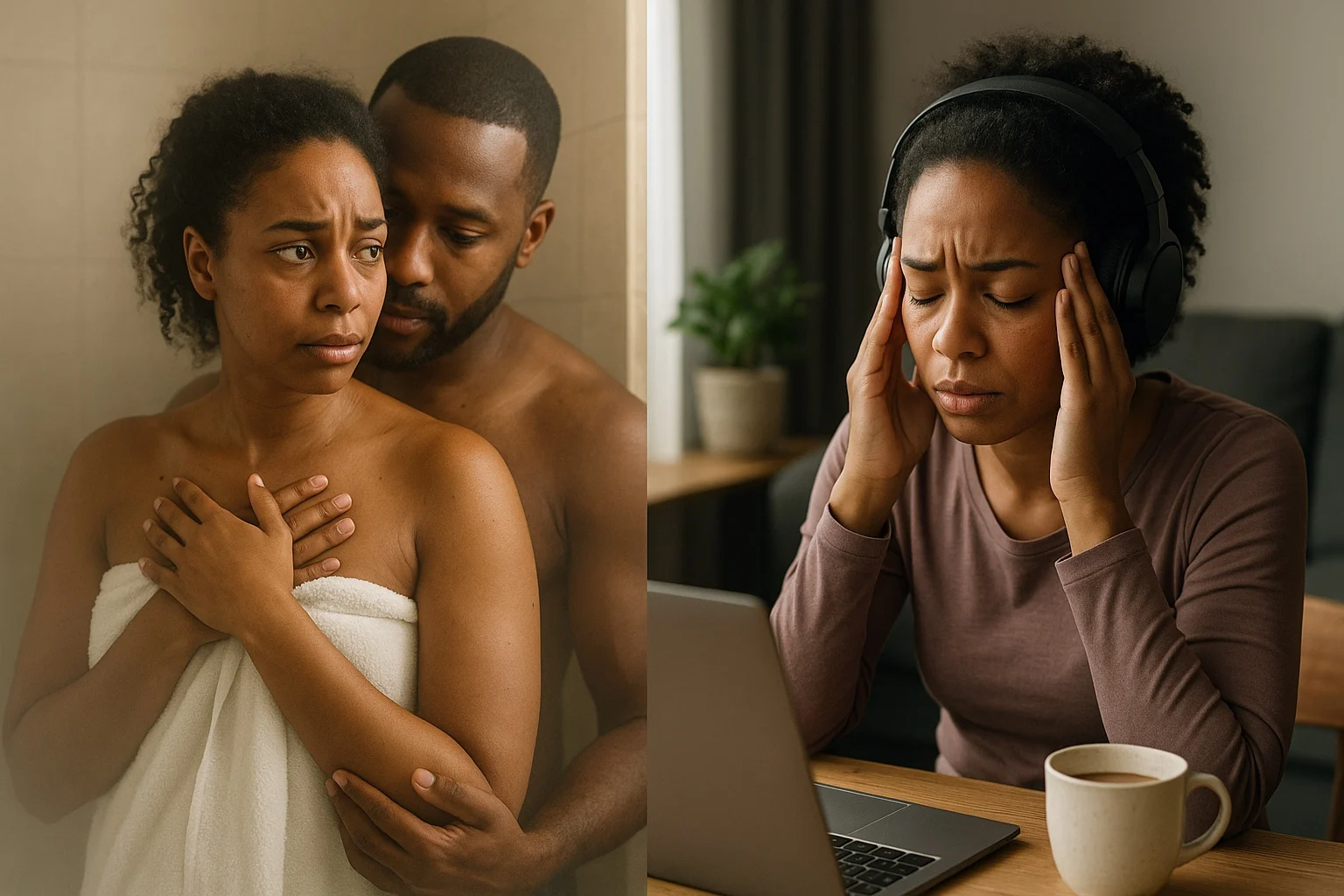⚠️ Trigger Warning: This post discusses health anxiety, panic, and fear around daily tasks.
📌 Disclaimer: This blog shares personal experiences and is not intended to replace professional medical advice.
Today was a high functioning anxiety day.
That means I still did things—I got out of bed, I worked from home, I showered—but it felt like dragging myself through quicksand the whole time.
I woke up already in panic mode.
My chest felt off.
My thoughts were racing.
And the first thing I did?
Check my heart rate. Again. And again. And again.
Scared to Shower, But I Didn’t Want to Be Alone
Even something as “simple” as a shower felt scary today.
What if I got lightheaded?
What if I panicked with no one nearby?
So I asked my husband to shower with me. Not to fix me, just to be there.
And he was.
That’s what surviving looks like sometimes.
I Still Worked—But It Wasn’t Easy
I work from home, and I logged in like always.
But today? I took a lot of breaks.
I had to step away to breathe, to cry, to calm myself down.
Every ping, every message, every task felt heavier than usual.
But I did it. Slowly. Anxiously.
And that still counts.
This is what a high functioning anxiety day looks like for me:
Smiling on the outside.
Fighting for calm on the inside.
I’m Not Lazy. I’m Overwhelmed.
Some people will never understand this kind of anxiety.
But if you’re reading this, I know you do.
You know what it’s like to be afraid of your own body.
To second-guess every twinge, every tight breath, every heart flutter.
To survive an entire day without anyone knowing you were in panic mode the whole time.
If today was that kind of day for you too—this post is for you.
You’re not dramatic.
You’re not weak.
You’re just doing your best with a brain that never shuts up.



